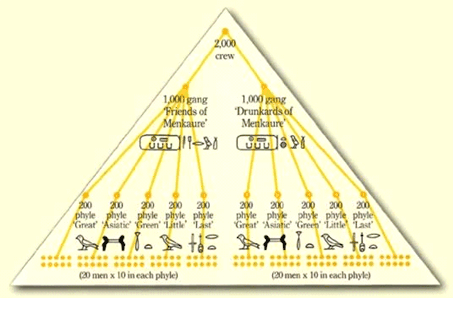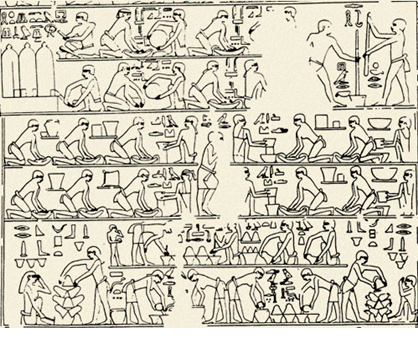planning in the pyramids
Building the pyramids was one of the largest civil works projects on records. Various scholars have attempted to identify the cost of the projects, however, a measure that is possibly more meaningful is the amount of effort required. One author has estimated that a total of 52 million man-days was required to construct the pyramids (reference).
The ancient Egyptians were the first recorded project managers. Of key concern to the project managers of the day was the organization of their main construction equipment, i.e. people. Hieroglyphics demonstrate that the smallest organization consisted of about 200 men. These crews were organized into larger groups consisting of about 2,000 men (reference).

Like industrialized projects today the resources required to have the crews perform included the payment to the crews and the raw materials. Archeological research demonstrates that a significant effort was spent, including the creation of camp-towns, to supply the bread and beer needed to pay the workers (reference).

In addition to bread and beer, onions were a critical means of payment for pyramid workers (reference). Pyramid builders had to manage these resources carefully or labor unrest would follow. Strikes due to non-payment of onions have been documented in the historical record (reference).